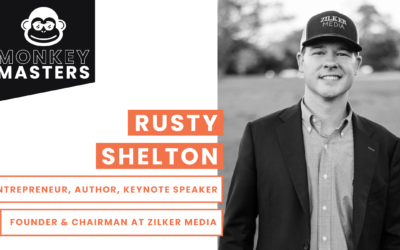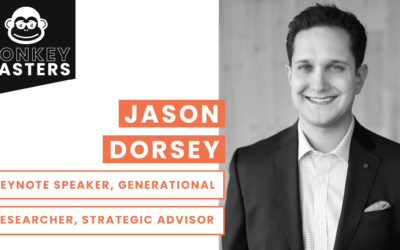Stepping aside is a really hard decision for any leader. Here is how I used the wisdom of Jack Welch, Steve Jobs and Jeff Bezos to make my decision.

This week I announced that I am retiring from role as Chairman of ServiceSource, a company that I have been associated with for over 12 years. I bought the company when it was a small startup, ran it as CEO for over 11 years, and grew it into a public company with over 3,000 employees around the world.
Last year I decided it was time for someone else to serve as CEO and agreed to remain in my Chairman role to ensure a smooth transition for the new executive team.
Now, with the new CEO doing great and getting the business back on solid footing, I’ve decided it’s time to step off the board, ending my long-standing and incredibly meaningful relationship with ServiceSource.
As I’ve discussed this decision with friends and colleagues, the response has been consistent:
“Wow, that was your baby…it must be really hard to step aside completely. Did you struggle to make that decision?
My answer?
“Not really. It was time, and rarely have I felt more confident about a decision.”
Why? I followed the advice of three of my business heroes – Jack Welch, Steve Jobs and Jeff Bezos – to help me make the right decision for me and for those around me.
Step #1: “Will Versus Skill”
The first step in my decision-making process was putting my ego aside and looking to my heart – and then using a tool that I always referenced for reviewing my executive team.
I’m a big fan of the GE managerial grid made famous by Jack Welch, which assesses an employee both for desire (will or cultural fit) and skill (ability to do the job):

Essentially, I had to step back and ask myself objectively two very key questions about both my desire AND ability to keep doing the job at the level I wanted. The questions I asked myself were really straightforward around will and skill.
Step #2: Asking a really tough question – Do I love this job enough to keep doing it well?
Steve Jobs, as usual, had a perspective on this that was dead on:
“I have looked in the mirror every morning and asked myself: “If today were the last day of my life, would I want to do what I am about to do today?” And whenever the answer has been “No” for too many days in a row, I know I need to change something.”
I came to the realization a few years ago that while I loved my team and the employees I worked with at ServiceSource, I no longer loved the CEO job. After 11 years at one company – considering the same subject matter and dealing with the pressure of being public– I had lost the burning desire I once had to drive the business forward.
I wrote about the emotional challenges of being an entrepreneur in my recent post, but the real key for me was acknowledging that I had lost some of the “will” that is essential in just about any job, but especially for the CEO of the company.
A leader with a compromised “will” is dangerous. To be clear, there is nothing wrong with losing the will; it’s only problematic if you don’t recognize it and act accordingly. By recognizing my own, it was clear to me that I wasn’t going to be the leader I needed to be with this mindset. Based on the GE managerial grid, I would need to either problem-solve or consider that the time may have come to move on. Time to look at the skill piece…
Step #3: Another tough question – Am I the most qualified executive for the job?
This question is the hardest one for an entrepreneur, founder or CEO answer objectively. But a strong leader has to review his or her team every six months (at a minimum) to make sure each executive around the table is continuing to contribute at a world-class level. I always loved this quote from Jack Welch:
“Leaders relentlessly upgrade their team, using every encounter as an opportunity to evaluate, coach, and build self-confidence.”
So it followed to ask the same tough question of myself.
To make this assessment, you have to be able to set aside emotion – and also to “know what you don’t know.” How do you measure your own skill and ability to expand as a leader while the business changes and evolves?
For me, the company that I was running had gotten big and complex, so the skillset required to be an effective public company CEO had become very different from the entrepreneurial work that I enjoyed and excelled at doing.
Processes, systems and organizational design had become really vital to managing the 3,000-person organization that ServiceSource has become. My early focus on sales, marketing, executive recruitment and growing the market were super for the first decade of the business.
But the gap between what I was good at and what the company needed had become too large. Knowing that I also had lost some of the “will” it takes to push past this lack of “skill,” it was clear that it was time to move on.
So when is it time for any leader – CEO, entrepreneur, founder or executive – to step aside and let someone else run the railroad? Think Regret Minimization!
When I turned this lens on myself, my decision to retire from the CEO position was driven by logic instead of emotion. It became a rational decision that was the right one for me AND the business.
The new CEO and his team are making a lot of smart decisions that I recognize as vital to the health and prosperity of the business.
Since I stepped aside, I now realize that my passion and energy can be focused on what I truly love – my family, helping other entrepreneurs with their journey, and investing in startup and emerging-growth businesses.
And now the decision to retire from the Chairman’s role is even easier. It’s always emotional when you close out a very special chapter in your life, and I’ll look back on what my team and I did with pride and amazing memories.
Any decision of this magnitude has to be personal and emotions will play a part of the equation. But if you look holistically at your situation – age, health, capabilities, passion or even financial needs – I think it makes the decision process easier and significantly reduces potential future regret. For me, Jeff Bezos nailed this sentiment:
“The framework I found which made the decision incredibly easy was what I called – which only a nerd would call – a ‘regret minimization framework.’ So I wanted to project myself forward to age 80 and say, ‘Okay, now I’m looking back on my life. I want to have minimized the number of regrets I have.’”
Done right, you can feel good both about being done and how the decision was made. For me, it is great to be done AND to feel great about how I made the decision.
What do you think? How do you know when it is time to move on from an entrepreneurial, CEO, executive or any other professional role?


